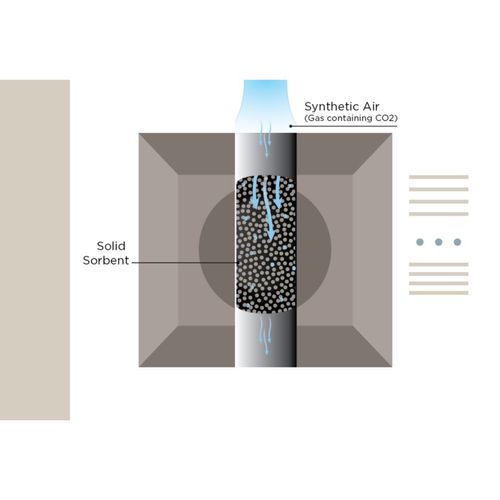NIST Develops New Testing System for Carbon Capture

In a new carbon capture testing apparatus, synthetic air flows through a column. The sorbent traps and captures the carbon molecules. The device measures how fast the sorbent becomes saturated with CO₂. // SOURCE: N. Hanacek/NIST
May 1, 2024
BY National Institute of Standards and Technology
Advertisement
Advertisement
Related Stories
A University of Houston team led by Professor Mim Rahimi has developed a membraneless electrochemical amine regeneration process that achieves over 90% CO₂ removal at roughly $70 per ton, significantly reducing both costs and energy use.
An industry consortium comprised of leading steelmaker sare undertaking a pre-feasibility study to assess the development of Carbon Capture, Utilisation and Storage (CCUS) hubs across Asia. The CCUS Hub study is the first independent industry-led study of its kind in Asia and will examine the technical and commercial pathways to utilising CCUS in hard-to-abate industries across Asia.
The Global Carbon Management Foundation, in partnership with the Global CCS Institute, has launched the Global Carbon Management Academy. Backed by the Carbon Management Challenge and leading institutional partners, the Academy aims to educate, train, and build knowledge to scale up carbon management globally.
Rice University researchers have developed an electrochemical reactor that has the potential to drastically reduce energy consumption for direct air capture (DAC), the removal of carbon dioxide directly from the atmosphere.
Utah State University’s Bingham Research Center has received a grant from the U.S. Department of Energy for a $480,000 project. The grant is part of a larger project called the Uinta-Piceance Basin Carbon Management and Community Engagement Partnership, which is led by the University of Utah.





